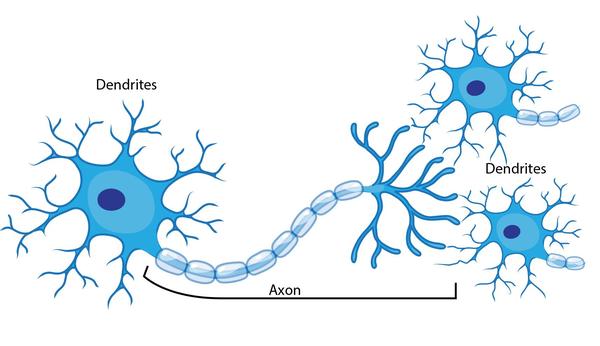New Study Shows That Junk Food Rewires the Brain
Every day I work with people that want to eliminate their pain. 9 times out of 10, the person I’m working with has a multi layered problem that largely stems from a mechanical breakdown in the musculoskeletal system, as well as high levels of systemic inflammation. This inflammation is very often due to overeating inflammatory food.
Although most people cheerfully make the commitment to work on the mechanical issues by hiring me, in 17 years of practice, I’ve seen very few people cut out the foods that were pouring gas on the fire. A new study sheds light on why this is, but before I tell you about it, let me first lay some groundwork by giving you an oversimplified physiology lesson.
Inside your brain there are about 100 billion nerve cells. Each of these nerve cells has connections to many other nerve cells. It looks something like this-

What is fascinating about this nerve network is that each nerve cell has thoughts, memories, emotions, information and beliefs associated with it. The connections made between the various nerves forms our personality, our worldview, our feelings, our desires and much more. This is why each person is so unique, because we all have differences in how we are wired.
Over the course of our lifetime, as you’d expect, MANY things shape how these nerve connections are made. Our family (both from nature and nurture), our experiences, our education, our behaviors, as well as what we watch, listen to and read.
Most people don’t realize it, but the bad habits they have are due to undesirable connections in their brain making them want things that are not good for them. The reason I bring this up is because the study that I made reference to showed that “junk food” (i.e., high fat or high sugar food with little to no nutritional value), will rewire the brain to essentially make you a food addict.
The featured study published in Cell Metabolism was performed by researchers at the Max Planck Institute for Metabolism Research in Cologne, Germany, in collaboration with a team of scientists from Yale University.
The researchers used a randomized, controlled study and engaged 57 normal-weight individuals for a period of eight weeks. One group was exposed daily to a high-fat, high-sugar snack and the other to a low-fat, low-sugar snack in addition to their usual diet.
At the conclusion of the study, the data showed those who consumed a high-fat, high-sugar snack had a lower preference for low-fat foods, had an increased brain response and had “associative learning (i.e. rewiring) independent of food cues or reward.”
The researchers measured associative learning using imaging in combination with auditory cues and visual outcomes. They discovered that those who ate a high-fat, high-sugar snack had neural encoding responses that were more enhanced than those eating a low-fat, low-sugar snack. Notably, the differences were not related to the individual’s age, sex, insulin resistance, or fat mass.
Marc Tittgemeyer from Max Planck Institute led the study. He commented on the results in a press release, saying:
“Our measurements of brain activity showed that the brain rewires itself through the consumption of {junk food}. It subconsciously learns to prefer rewarding food. Through these changes in the brain, we will unconsciously always prefer foods that contain a lot of fat and sugar.
“New connections are made in the brain, and they don’t dissolve so quickly. After all, the whole point of learning is that once you learn something, you don’t forget it so quickly.”
In light of all this, you might be tempted to think that overcoming this brain rewiring problem is impossible, but it’s not. With new habits and new information, your nerves can rewire at any age, giving you freedom from the desire to load your body with inflammatory food, which over time make you feel better.
Here’s an article from “Psychology Today” that lists 6 steps to follow to no longer be a “junk food junkie.”
Six Steps to Stop a Junk Food Addiction
Hope you found this helpful. Please share this with someone you care about!
God bless,
Chris
